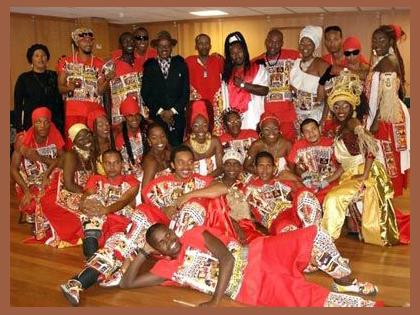 Ilê Aiyê
Ilê Aiyê
Ilê Aiyê: A Journey of Cultural Resistance and Musical Expression
Origins and Mission
Ilê Aiyê emerged in the vibrant cultural landscape of Salvador, Bahia, Brazil, in 1974. As a bloco afro—an Afro-Brazilian street band—its mission was to celebrate and empower the African diaspora through music, dance, and social activism. Inspired by the Olodum movement, Ilê Aiyê aimed to combat racism and promote black identity in a society marked by systemic inequality.
Challenges and Controversies
The band's path was not without obstacles. In its early days, Ilê Aiyê faced resistance from the authorities, who viewed Afro-Brazilian cultural expressions as a threat to the established social order. The band's radical lyrics and performances also sparked controversy. However, Ilê Aiyê's determination and unwavering commitment to its mission helped it overcome these challenges.
Musical Style
Ilê Aiyê's music is an eclectic blend of traditional Afro-Brazilian rhythms, such as samba reggae and ijexá, with contemporary elements like rock and funk. The band's signature sound is characterized by its infectious rhythms, soulful vocals, and empowering lyrics that explore themes of black pride, cultural resistance, and social justice.
Discography
Over the years, Ilê Aiyê has released a series of critically acclaimed albums, including:
* "Ilê Aiyê" (1984)
* "Tributo a Mãe Menininha do Gantois" (1986)
* "Negrume da Noite" (1988)
* "Ilê Aiyê 20 Anos" (1994)
* "Diáspora" (2000)
* "Afrocanto" (2006)
Members
Throughout its history, Ilê Aiyê has featured a diverse group of talented musicians and performers. Some of its most notable members include:
* Vovô do Ilê (founder and bandleader)
* Carlinhos Brown (former member and renowned musician)
* Margareth Menezes (former vocalist)
* Mateus Aleluia (singer-songwriter)
Legacy and Impact
Ilê Aiyê has become a global icon of Afro-Brazilian culture. Its music has reached audiences worldwide, inspiring and empowering marginalized communities. The band has also played a crucial role in raising awareness about social issues, fostering dialogue, and promoting cultural diversity. Through its unwavering commitment to resistance and its celebration of black identity, Ilê Aiyê continues to be a beacon of hope and inspiration in the fight for a more just and equitable society.
Origins and Mission
Ilê Aiyê emerged in the vibrant cultural landscape of Salvador, Bahia, Brazil, in 1974. As a bloco afro—an Afro-Brazilian street band—its mission was to celebrate and empower the African diaspora through music, dance, and social activism. Inspired by the Olodum movement, Ilê Aiyê aimed to combat racism and promote black identity in a society marked by systemic inequality.
Challenges and Controversies
The band's path was not without obstacles. In its early days, Ilê Aiyê faced resistance from the authorities, who viewed Afro-Brazilian cultural expressions as a threat to the established social order. The band's radical lyrics and performances also sparked controversy. However, Ilê Aiyê's determination and unwavering commitment to its mission helped it overcome these challenges.
Musical Style
Ilê Aiyê's music is an eclectic blend of traditional Afro-Brazilian rhythms, such as samba reggae and ijexá, with contemporary elements like rock and funk. The band's signature sound is characterized by its infectious rhythms, soulful vocals, and empowering lyrics that explore themes of black pride, cultural resistance, and social justice.
Discography
Over the years, Ilê Aiyê has released a series of critically acclaimed albums, including:
* "Ilê Aiyê" (1984)
* "Tributo a Mãe Menininha do Gantois" (1986)
* "Negrume da Noite" (1988)
* "Ilê Aiyê 20 Anos" (1994)
* "Diáspora" (2000)
* "Afrocanto" (2006)
Members
Throughout its history, Ilê Aiyê has featured a diverse group of talented musicians and performers. Some of its most notable members include:
* Vovô do Ilê (founder and bandleader)
* Carlinhos Brown (former member and renowned musician)
* Margareth Menezes (former vocalist)
* Mateus Aleluia (singer-songwriter)
Legacy and Impact
Ilê Aiyê has become a global icon of Afro-Brazilian culture. Its music has reached audiences worldwide, inspiring and empowering marginalized communities. The band has also played a crucial role in raising awareness about social issues, fostering dialogue, and promoting cultural diversity. Through its unwavering commitment to resistance and its celebration of black identity, Ilê Aiyê continues to be a beacon of hope and inspiration in the fight for a more just and equitable society.